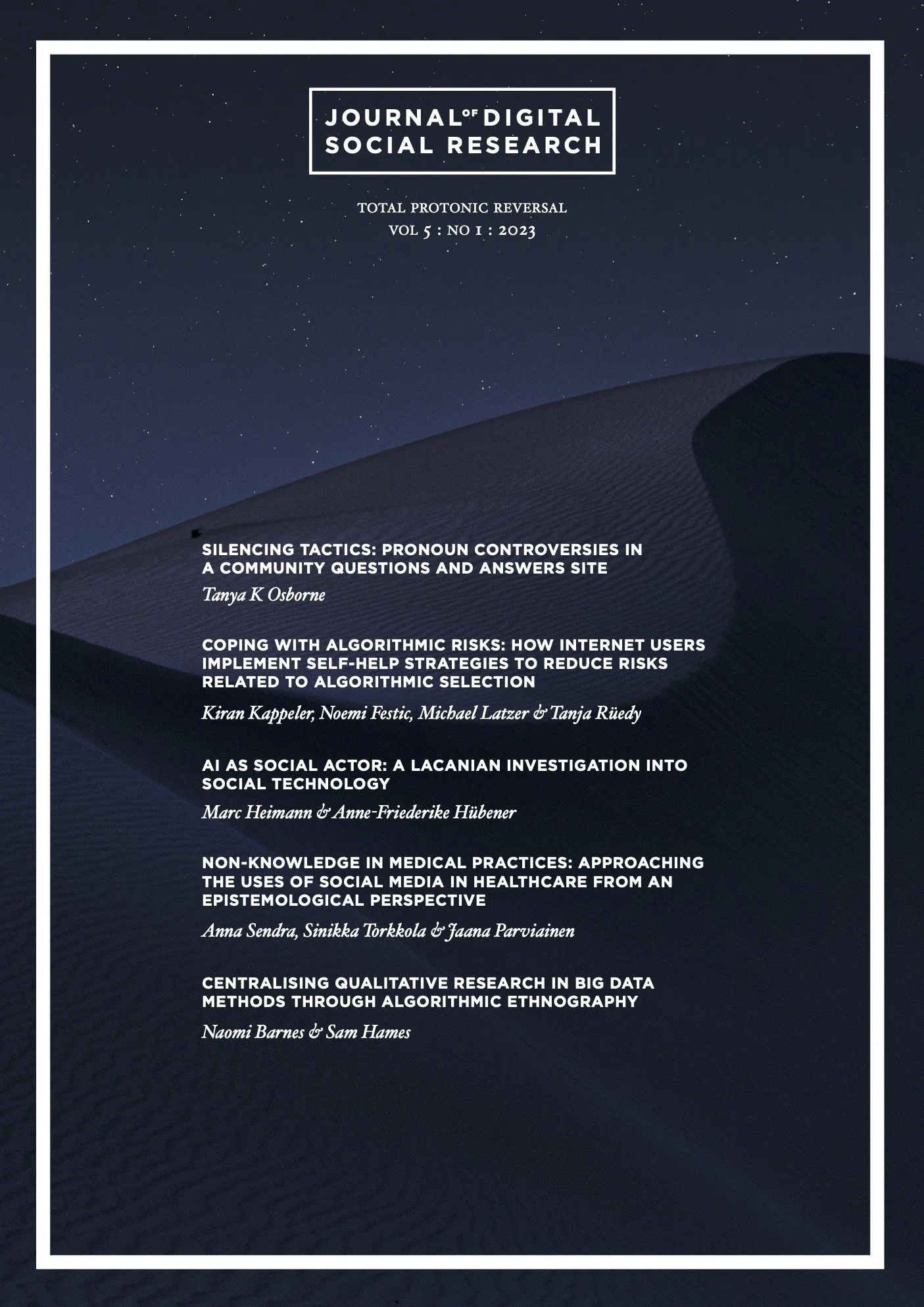Vol. 5 : No. 1 : 2023
March 2023
About the issue
This issue of JDSR starts off with an article by Tanya K Osborne on silencing tactics, more specifically how pronoun controversies play out in a community questions-and-answers site. Through digital ethnography, Osborne explores how an international online programming community, Stack Exchange, responded to the challenges of implementing trans and nonbinary inclusive language policies. In the following contribution, by Kiran Kappeler, Noemi Festic, Michael Latzer and Tanja Rüedy, we find an exploration of how internet users implement self-help strategies to reduce risks related to algorithmic selection. Enumerating a number of different risks flowing from algorithmic selection, the authors use survey data from the Swiss online population to show how personal affectedness by algorithmic risks, awareness of algorithmic risks and algorithm skills are associated with the use of self-help strategies like adjusting privacy settings, double-checking of information, and ignoring automated recommendations to cope with the algorithmic risks of surveillance, distorted information, and internet overuse to varying degrees.
Marc Heimann and Anne-Friederike Hübener examine the impact of AI-driven social networks on society and politics. They propose a logical framework using Lacanian psychoanalysis to understand this new social landscape and identifiy a specific form of subjectivity that is amplified by online phenomena like echo chambers and digital identities. In the next article, Anna Sendra, Sinikka Torkkola and Jaana Parviainen explore how social media is transforming illness management for patients. Despite patients seeking information and support online, healthcare professionals often overlook the valuable knowledge generated by patients on social media. The article uses social epistemology and ignorance studies to challenge these views, presenting four ideas to improve healthcare digitisation, including the potential of media and digital health literacy to enhance social media use in healthcare.
In the final article of the issue Naomi Barnes and Sam Hames proposes a methodology for algorithmic ethnography. Their approach analyzes algorithmic discourses while working alongside data scientists, placing people’s understanding of the world at the center of big data research. By using big data methods for qualitative research, this approach offers an affordable way to investigate the technical processes framing online social interactions.

